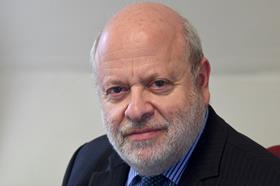The discussion of immigration is reaching fever-pitch. Political parties battle it out to see who can come up with the most extreme anti-immigrant position. An asylum seeker wrongly let out of prison before deportation dominates the news headlines. Union Jacks and St George’s flags are sprouting up in many towns. Over the summer, there were demonstrations and counter-demonstrations.

This article is not about the politics of immigration – who is right and who is wrong - but rather the perspective of immigration through the lens of the legal profession, given that we are active players in the debate.
The starting point is a conference on migrant smuggling held last week by the Council of Europe. Its strapline was ‘no country can face this rapidly evolving global crime alone’.
‘Alone’ is an important word, because we are not alone in facing immigration from outside Europe. Our debate usually takes place without context, as if only we are facing these challenges. It is understandable that in these circumstances we think that our situation is unique. But statistics published last month by the House of Commons Library show a different picture. In 2024, there were around 16 asylum applications for every 10,000 people living in the UK. Across the member states of the EU, there were 22 asylum applications for every 10,000 people. The UK was, therefore, below the average among EU countries for asylum applications per head of population, ranking 14th among the EU 27 member states plus the UK.
And we are not alone as lawyers in trying to protect our members from being attacked in one way or another for assisting asylum seekers and others in immigration procedures. The Council of Bars and Law Societies of Europe (CCBE) represented our legal profession at the Council of Europe conference. As part of its presentation, it cited its own response to a proposal for an EU directive on minimum rules to prevent and counter the facilitation of unauthorised entry, transit and stay in the EU (the anti-smuggling directive). The directive would criminalise the act of intentionally assisting third-country nationals in entering, transiting, or residing in the EU for financial or material gain. The perceived danger is that lawyers would be caught in its criminalisation sweep, which would be contrary to core principles of access to justice.
The CCBE cited in its paper a statement put out previously by the Law Society and the Bar on an attack on an English immigration solicitor. French and German lawyers have faced similar issues. It is helpful to know that our collective experiences are used to influence outcomes beyond our borders.
Perspective is important because the fever pitch of the debate can have devastating consequences, including on our solicitor colleagues. Two of the solicitors named in the Daily Mail sting from 2023 about the supposed behaviour of some solicitors in advising asylum seekers were cleared this year by the Solicitors Disciplinary Tribunal.
At the time of the original article, the justice secretary asked the Solicitors Regulation Authority to come down hard on the named solicitors. The chair of the SRA – much in the news recently for having presided over two disasters at the SRA – was reported to be shocked by the apparent behaviour of the solicitors under scrutiny.
Well, the SRA did come down hard – so hard that one of the solicitors cleared by the SDT had his career and health ‘destroyed’ by the proceedings. His office windows were smashed. He had to pay more than £100,000 in irrecoverable legal costs to defend himself, on top of a six-figure sum demanded of him by the SRA as the costs of intervention.
The perspective in this case is to know that this has happened before – in other words, we are not alone in the present. There have been immigration waves, along with anti-immigrant sentiment, in our past. As part of the Huguenot waves of immigration up until the 18th century, there were occasional anti-foreigner riots, as well as complaints about jobs threatened and special favours given. Our immigration laws were tightened in the 1930s to keep out European Jews.
That is not to say that there should not be a proper and serious political response to the immigration issues facing us, but rather that in terms of numbers, history, and the need to maintain our core principles (including justice) we should keep a cool head and look to other past and present responses.
Solicitors sometimes question why the Law Society needs to maintain close relations with a host of international legal bodies and, more particularly, why our president needs to jet off to speak at their conferences and meet their leaders. This article tries to pinpoint one of the main reasons. Without proper contact with the outside world, we lose perspective over our problems and possible solutions to them.
We need to understand that we are not alone.
Jonathan Goldsmith is Law Society Council member for EU & International, chair of the Law Society’s Policy & Regulatory Affairs Committee and a member of its board. All views expressed are personal and are not made in his capacity as a Law Society Council member, nor on behalf of the Law Society
This article is now closed for comment.































10 Readers' comments